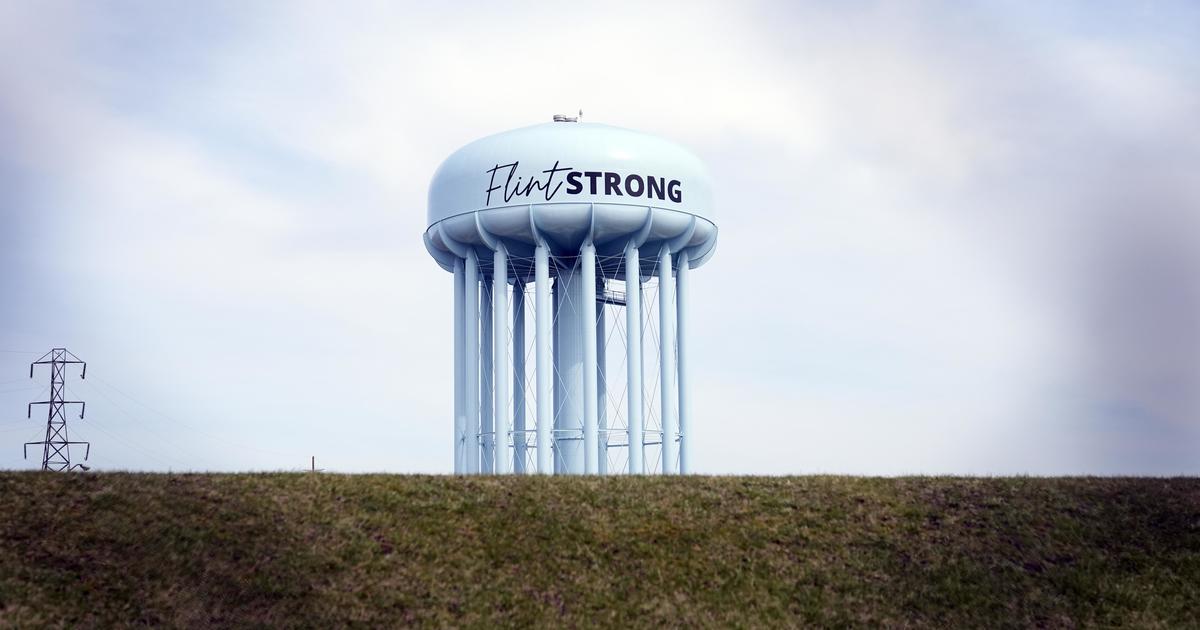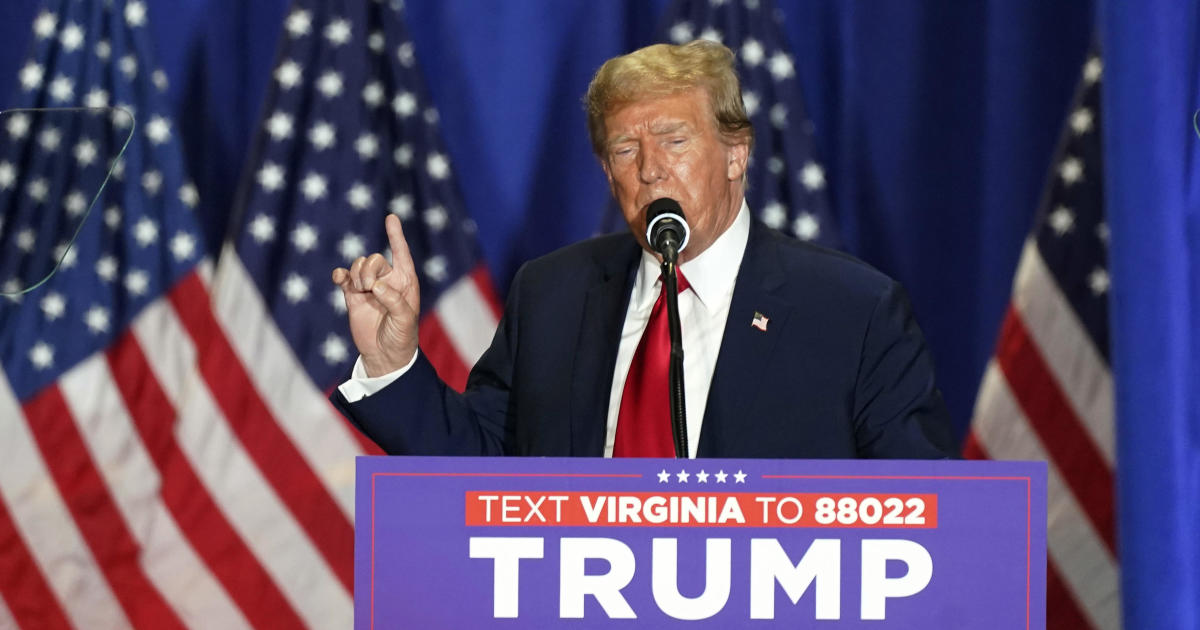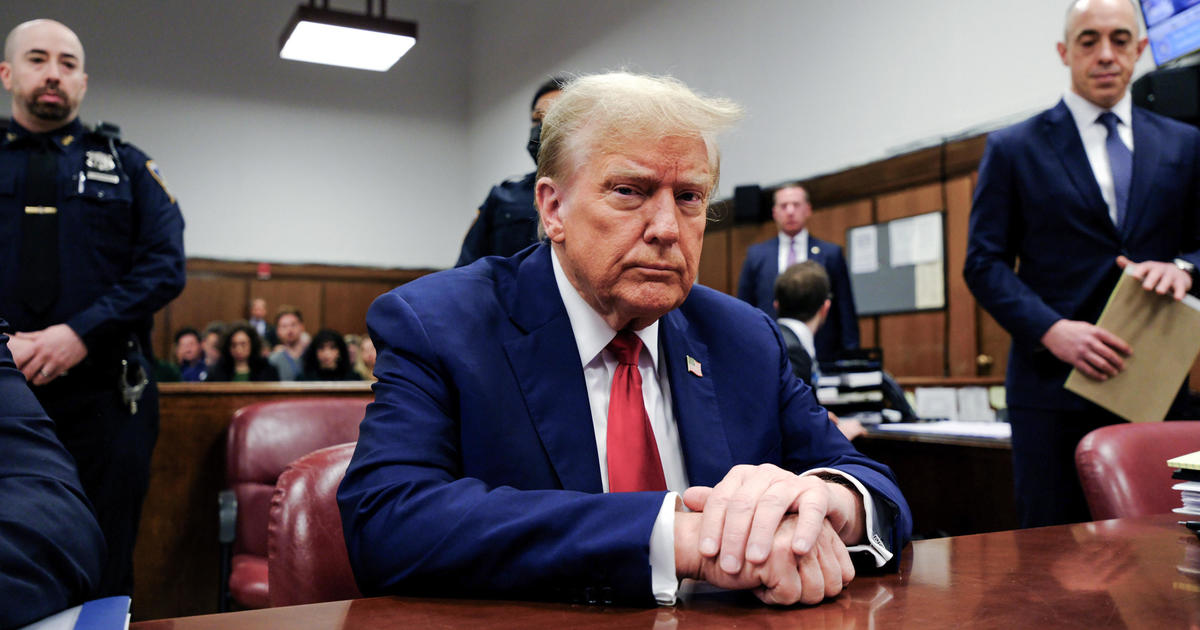Supreme Court Upholds Michigan Affirmative Action Ban
WASHINGTON (WWJ/AP) - The Supreme Court has upheld Michigan's ban on using race as a factor in college admissions.
The justices said in a 6-2 ruling Tuesday that Michigan voters had the right to change their state constitution to prohibit public colleges and universities from taking account of race in admissions decisions. The justices say that a lower federal court was wrong to set aside the change as discriminatory.
"This means that the people of Michigan won," said Jennifer Gratz, who filed the lawsuit, speaking live on WWJ Newsradio 950 just after she learned of the ruling. "Race preferences are indeed unconstitutional in Michigan, and the people do have a right to vote on important issues in this state."
When she was denied admission to the University of Michigan well over a decade ago, she believed it was unfairly due to affirmative action quotas.
"I've learned that it's taken a lot of patience to guarantee that everyone is treated equally by our government," said Gratz, talking to WWJ on her cell phone on her way to the Supreme Court. "I don't think that it should require patience or 17 years, but today is a great day."
"Everyone who applies to the University of Michigan will now know that they have been accepted or rejected on their own merit, and that their skin color or their gender did not help or hurt them," she said.
In the ruling, Justice Anthony Kennedy said voters chose to eliminate racial preferences, presumably because such a system could give rise to race-based resentment.
Kennedy said nothing in the Constitution or the court's prior cases gives judges the authority to undermine the election results.
"This case is not about how the debate about racial preferences should be resolved. It is about who may resolve it," Kennedy said.
"Justice Kennedy saying that he took into consideration the voters' vote ...," said WWJ Legal Analyst Charlie Langton, "and that was very important to him; and two justices said there's no violation of the Constituion when you exclude race in any type of college admissions."
"So, a very significant day. How this will factor into minorities getting into colleges remains to be scene," Langton said. "But what I take from this: The voters of Michigan spoke, and the Supreme Court said what they were voting on was right."
In dissent, Justice Sonia Sotomayor said the decision tramples on the rights of minorities, even though the amendment was adopted democratically. "But without checks, democratically approved legislation can oppress minority groups," said Sotomayor, who read her dissent aloud in the courtroom Tuesday. Justice Ruth Bader Ginsburg sided with Sotomayor in dissent.
At 58 pages, Sotomayor's dissent was longer than the combined length of the four opinions in support of the outcome.
Chief Justice John Roberts and Justices Stephen Breyer, Samuel Alito, Antonin Scalia and Clarence Thomas agreed with Kennedy.
Justice Elena Kagan did not take part in the case, presumably because she worked on it at an earlier stage while serving in the Justice Department.
In 2003, the Supreme Court upheld the consideration of race among many factors in college admissions in a case from Michigan.
Three years later, affirmative action opponents persuaded Michigan voters to change the state constitution to outlaw any consideration of race.
The 6th U.S. Circuit Court of Appeals said the issue was not affirmative action, but the way in which its opponents went about trying to bar it.
In its 8-7 decision, the appeals court said the provision ran afoul of the Equal Protection Clause of the U.S. Constitution's 14th Amendment because it presents an extraordinary burden to affirmative action supporters who would have to mount their own long, expensive campaign to repeal the constitutional provision.
Similar voter-approved initiatives banning affirmative action in education are in place in California and Washington state. A few other states have adopted laws or issued executive orders to bar race-conscious admissions policies.
Black and Latino enrollment at the University of Michigan has dropped since the ban took effect. At California's top public universities, African-Americans are a smaller share of incoming freshmen, while Latino enrollment is up slightly, but far below the state's growth in the percentage of Latino high school graduates.
The case was the court's second involving affirmative action in as many years. In June, the justices ordered lower courts to take another look at the University of Texas admissions plan in a ruling that could make it harder for public colleges to justify any use of race in admissions. The case is Schuette v. Coalition to Defend Affirmative Action, 12-682.
Does this mean Michigan's same-sex marriage ban will get the same treatment when the case reaches the state's high court?
Langton says, probably not. The key here, he said, is what is and is not constitutional.
"I say the big difference here is that the justices believe there is no constitutional right to treat minorities different than non-minorities in college admissions," Langton said. "As we've seen a lot in lower cases, there doesn't seem to be any rationale to treat gay people differently than straight people, despite what the voters voted back in 2004."
MORE: Attorney Vows To Fight 'Racist' Supreme Court Affirmative Action Ruling With Sit-Ins, Strikes
TM and © Copyright 2014 CBS Radio Inc. and its relevant subsidiaries. CBS RADIO and EYE Logo TM and Copyright 2014 CBS Broadcasting Inc. Used under license. All Rights Reserved. This material may not be published, broadcast, rewritten, or redistributed. The Associated Press contributed to this report.



